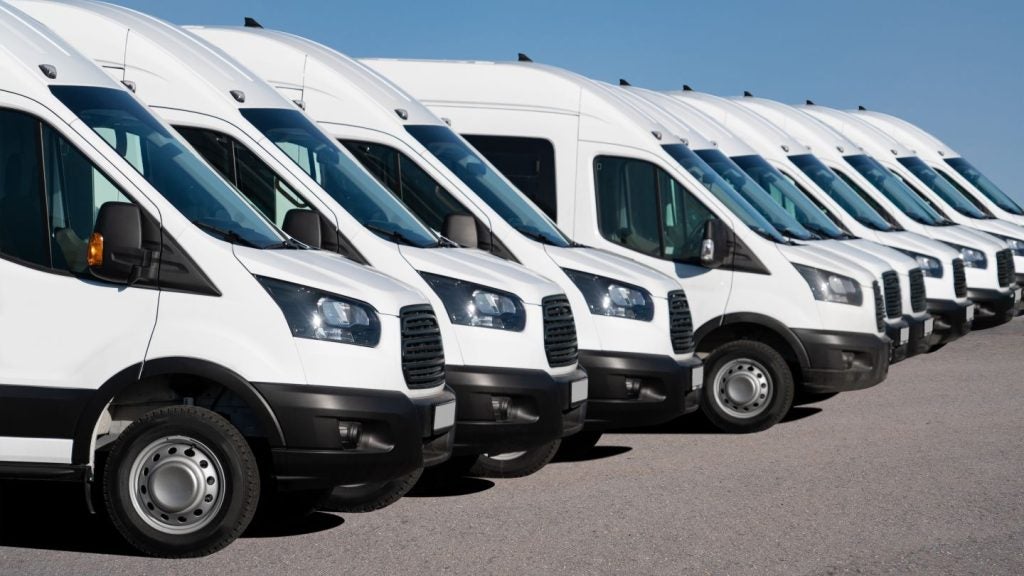
Covid-19 has driven intense digital change across the motor finance industry. From the increased adoption of online showrooms and e-signatures on the surface, to profound shifts in the core structure of the market. Hannah Wright explores the pandemic-induced digitalisation in the industry.
There are certain things consumers do not want to purchase exclusively online. Some products, such as cars, necessitate multiple touchpoints along the consumer journey, or so the story goes.
Subsequently, when Covid-19 restrictions forced the closure of dealerships across the country, there were fears that consumers would refrain from purchasing vehicles in the absence of any such touchpoints. Would consumers be willing to engage with the market without the ability to visit the dealership and physically see the car? In the words of Steve Palombo at YesAuto: “Absolutely. Covid-19 has proven customers are prepared to do it.”
Speaking on the process of digitalisation within the automotive industry, Palombo says: “It has been a big leap of faith for the industry, and Covid-19 has accelerated that. We must have Click & Collect, we must have online capability. Used car prices are as strong as they’ve ever been in a market that nobody could have anticipated. In all honesty, we probably short-changed the customer by not giving them this capability sooner.”
According to a report Realising the Digital Promise by consultancy firm Deloitte, Covid-19 has driven four fundamental shifts within the financial services industry: the adoption of online and mobile channels; a tipping point for digital payments; overnight virtualisation of the workforce and ways of working; and evolution of the underlying market structure. Across the motor finance segment, each of these shifts is stark.
Adoption of digital channels
How well do you really know your competitors?
Access the most comprehensive Company Profiles on the market, powered by GlobalData. Save hours of research. Gain competitive edge.

Thank you!
Your download email will arrive shortly
Not ready to buy yet? Download a free sample
We are confident about the unique quality of our Company Profiles. However, we want you to make the most beneficial decision for your business, so we offer a free sample that you can download by submitting the below form
By GlobalDataThese shifts were already underway, even before the pandemic arrived, notes Palombo. “If you look at consumer behaviour over the last few years, we were all buying more online. The motor industry has spent a long time trying to catch up with other industries on this front. For example, in consumer retail, Click & Collect has been around for years.
“It’s been a big step for businesses within our industry to realise that, in fact, consumers are prepared to interact with you on a big purchase online. The industry was reticent because people believed customers wouldn’t buy a £30,000 car online. Which might partially be true. But, if a consumer is on their fifth or sixth iteration of a Golf or a Mini, then they know what they are buying into. Why would customers need to test drive the next one?”
Digitalisation has however created a level of fragmentation within the industry. Such fragmentation has been highlighted by those firms that have truly profited from Covid-19 restrictions. Palombo explains: “As the industry has tried to catch up with the trends of online shopping, companies have taken different models or routes to try and engage with the customer.
“Consumers are well acquainted with shopping online, so by extension, they expect the same in automotive.”
“There are firms like YesAuto and Auto Trader who are purely there to engage the customer and give you options but not to complete the transaction. What other platforms have done now is provide more customer-facing tools within that model, to get them further down the sales path.”
Referring to the new UK based used-car sales platform Cazoo, Palombo says: “They [Cazoo] have entered the market at the best time in history. It’s a totally new concept, and finance is key to this concept. If customers cannot obtain finance approval or a credit check online, then that whole journey falls flat very quickly. If companies are not able to interact with customers online in a financial way, then they will go backwards very quickly. Subsequently, firms want that technological capability – they’re clamouring for it.”
Shifting behaviour
Launched in 2019, Cazoo is now selling and delivering thousands of cars a month to customers around the country. Following another funding round at the end of 2020, Cazoo’s valuation has more than doubled, becoming the UK’s fastest ever ‘unicorn’, with a valuation of $1bn.
Seán Kemple, managing director of Close Brothers Motor Finance, also acknowledges the success of Cazoo. “Before the pandemic, we saw the launch of Cazoo, a digital-only offering. They launched at a very prominent time and are doing well, which points to a shift in consumer behaviour.
“It’s been a positive change because it has accelerated the digital transformation in the industry, and how consumers want to buy vehicles in the first place. Currently, it’s a need’s must scenario, but there is another driver. Consumers are well acquainted with shopping online, so by extension, they expect the same in automotive.”
Kemple echoes the growing significance of the online journey: “At Close Brothers, we’ve always been focused on shifting consumer behaviour. More and more of the consumer journey is happening online. We’re very conscious of that and most of our transformation plans are focusing on this shift.
“During the pandemic, we started to accelerate the release of some of our latest tools. In May 2020 we launched a product called Remote Quote and Apply, which enabled consumers to receive a quote from dealers and amend that quote from their phones. The launch was a direct response to Covid-19 and it was one of the biggest tools we rolled out.
“From a back-office perspective, we rolled out a new customer relationship management tool pre-Covid, allowing us to see any interaction with our dealers. Using data from the tool we were able to segment dealers, and it was easier to direct our team to the right dealers. “
Remote working and online showrooms
The third fundamental shift – overnight virtualisation of the workforce and ways of working – has had little bearing on auto finance firms whose business model centres on an online platform. This model has proven ideal for firms facing up to the challenges resulting from the pandemic.
Online platform YesAuto launched during the first national lockdown, and according to Palombo: “The firm has not had it anywhere near as bad as our customers, who are predominantly retailers. They’re having to cope with constant changes of closing and opening and closing again. It’s hard to maintain any kind of consistency. As an online platform, we’re not having to do that.”
For Jon Slater, chief strategy officer at MotoNovo, supporting dealers through the difficult periods was critical, and the firm very consciously kept its “foot on the gas”. Slater says: “Innovation and change are an integral part of the MotoNovo culture and from the moment that lockdown commenced on 23 March, we evolved at a rapid rate.”
Across the pandemic, MotoNovo introduced a new Click & Reserve tool for dealers to help them keep selling cars; provided additional support to the dealer community as an accredited Introducer for the Coronavirus Business Interruption Loan Scheme; and ensured continuous maintenance of dealer the digital marketplace, findandfundmycar, a useful tool to dealers facing dealership closures.
Slater continues: “We were up and running with home-working inside 24 hours. It set the tone for the pace of development of a host of new technologies, processes, and services to support consumers and dealers.
“For the past 10 years, we’ve been on a journey of creating innovate digital origination and servicing capabilities. Consequently, we were already well advanced in our digital capabilities and people have been happy to leverage our growing portfolio of online tools in more significant numbers. “
Evolution of the market
Concerning the evolution of the market, Palombo, Kemple and Slater can all agree that the digital shift, forging change in every corner of the motor finance industry, is permanent. Despite this, they each believe there will still be space for showrooms.
Palombo believes the dealer network will remain important as customers still need a platform to access particular services. “With all the evidence we are seeing, even though we have hugely advanced our online capacity as an industry, people still like a touchpoint at some point in the industry.
“Cars are complex, and of course, the market is changing rapidly – particularly towards electrification. People need more information on EVs. In general, car finance is still a dark art for many consumers, so they still require some touchpoint or human interaction.
“In the future, the dealer network might shrink slightly, and the model will change as we progress across the next five years. I know certain OEMs, such as Ford, have already announced plans to halve the size of their network over the next couple of years. You won’t need as many touchpoints because if they’ve done most of the sales journey online, they won’t need to attend a dealership 4 or 5 times.
“This, in turn, affects the role of the dealer. They will no longer be the salespeople that they once were, trying to sell a particular number of cars for a certain level of commission. They will assume more of a customer executive role, providing the customer with the information they need to make the decision themselves.
“A good example is the Apple model, their instore salespeople – the ‘Geniuses’ – are mostly there to answer your questions, not necessarily to sell you something. I see this happening in the automotive industry, a shift towards a more customer-centric model. Consumers are far more informed, and salespeople will need to adjust to that.”
An omnichannel model
Slater expects the online experience for consumers to be more immersive and engaging, with a remaining critical and continuing role for dealers. “In the used car space, I see it as an omnichannel model where customers find their car and dealer online, complete their finance online.
“However, for some buyers, the car purchase journey will continue to include the showroom. Many people will still want to test drive the car and dealer experience with such a major cost. The role of the dealer will be important because of the aftersales implications.
In response to the changing role of the dealer, Close Brothers Motor Finance will be rolling out a new sales academy and induction for new employees coming into the organisation, to prepare its sales team more effectively for the changing nature of sales in the automotive space.
According to Kemple: “We’re going to continue increasing our digital capability and that will see our continued rollout of finance calculators on dealer websites. We’ll continue to evolve our APIs to engage more partners in the motor ecosystem. We’re rolling out a new multi-system underwriting platform that allows us to develop some very sophisticated strategies right down into registration plate or postcode, that launches in the early summer period.”
Everyone is trying to get their heads around the future of the car buying process, concludes Kemple. “A few years ago, the dealer was king. That’s recently shifted – the consumer is king. Over the years, we have worked with dealers to migrate from print to digital, and now we’re migrating towards data. Our role in helping firms navigate the future, whatever that might look like. That’s what I find the most exciting. It’s a great industry, it’s unbelievable.”







